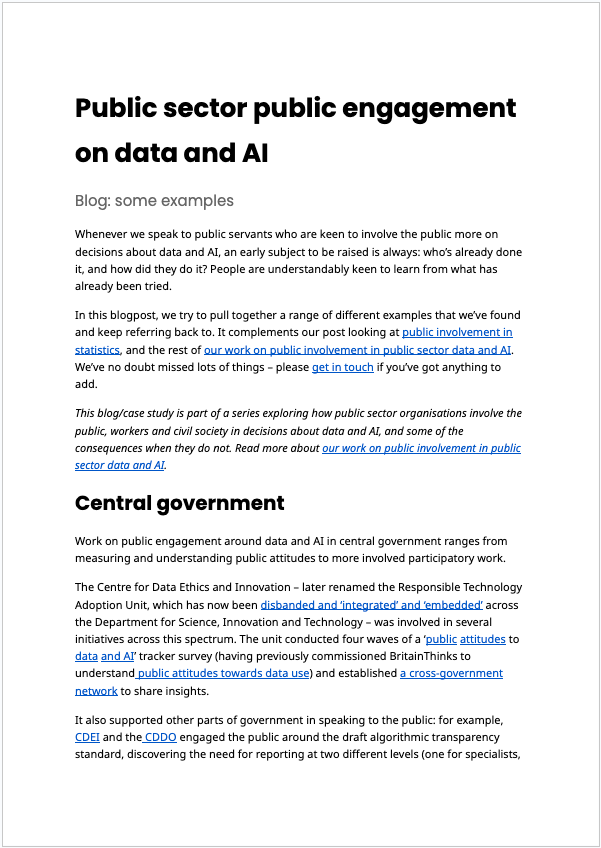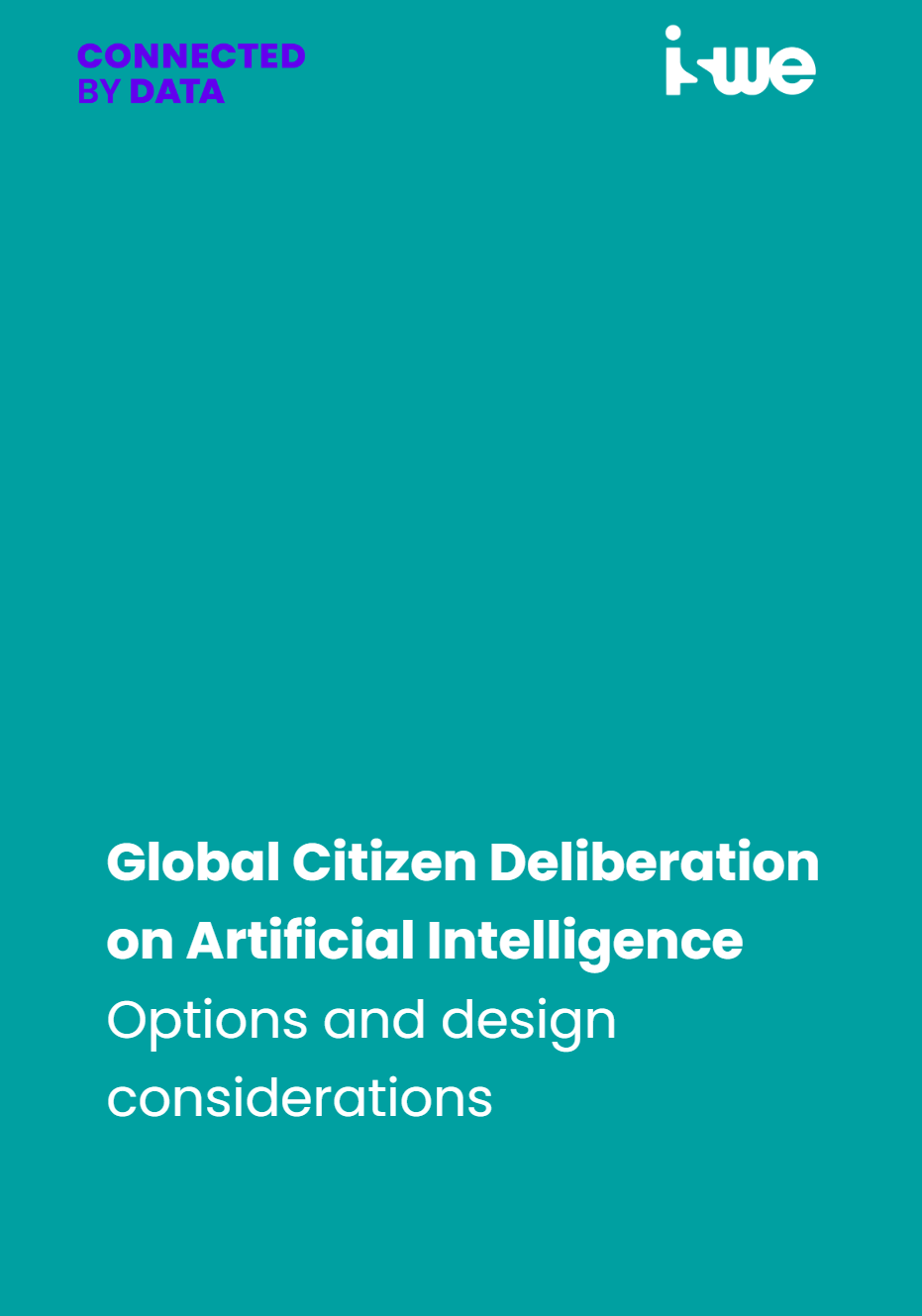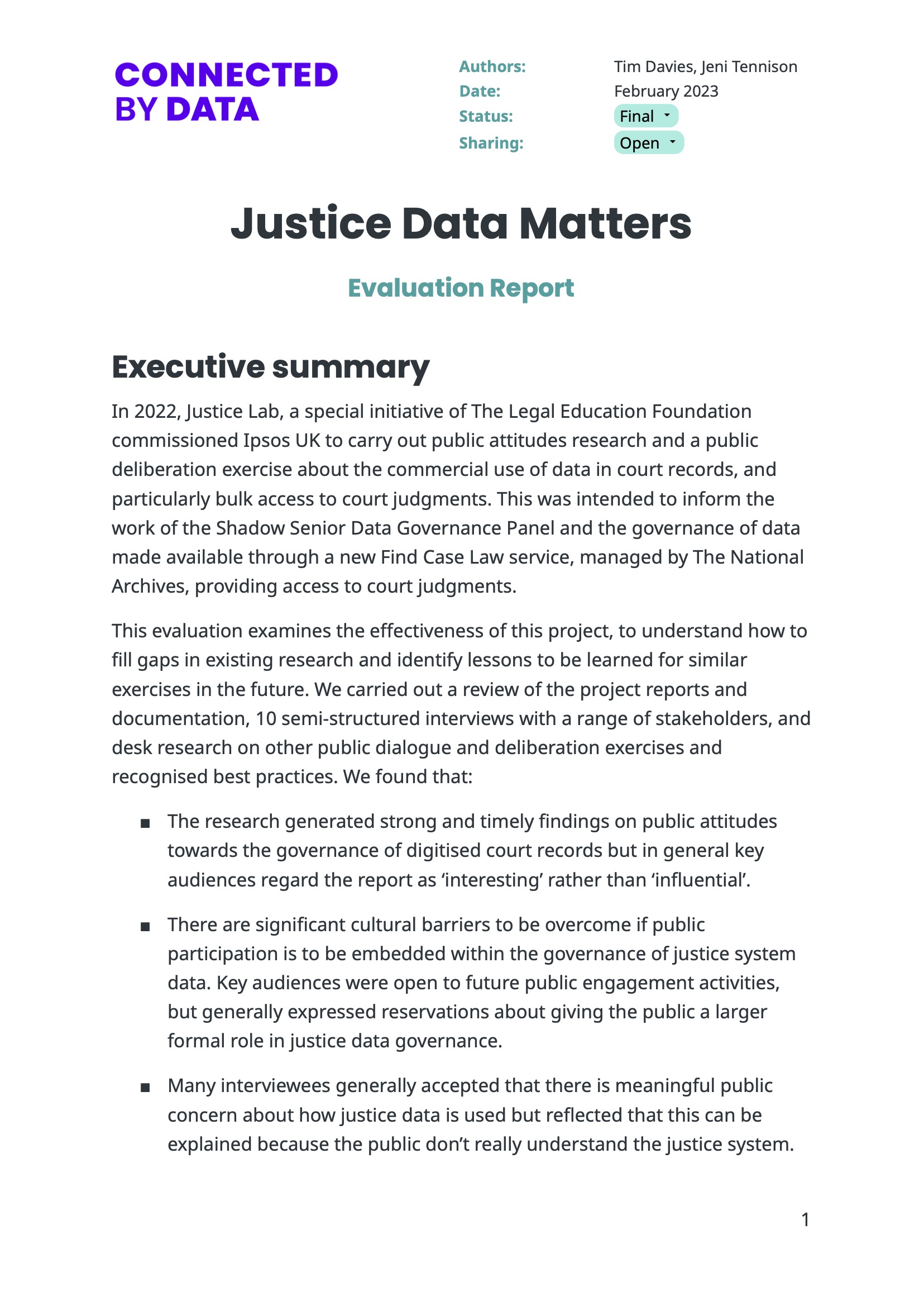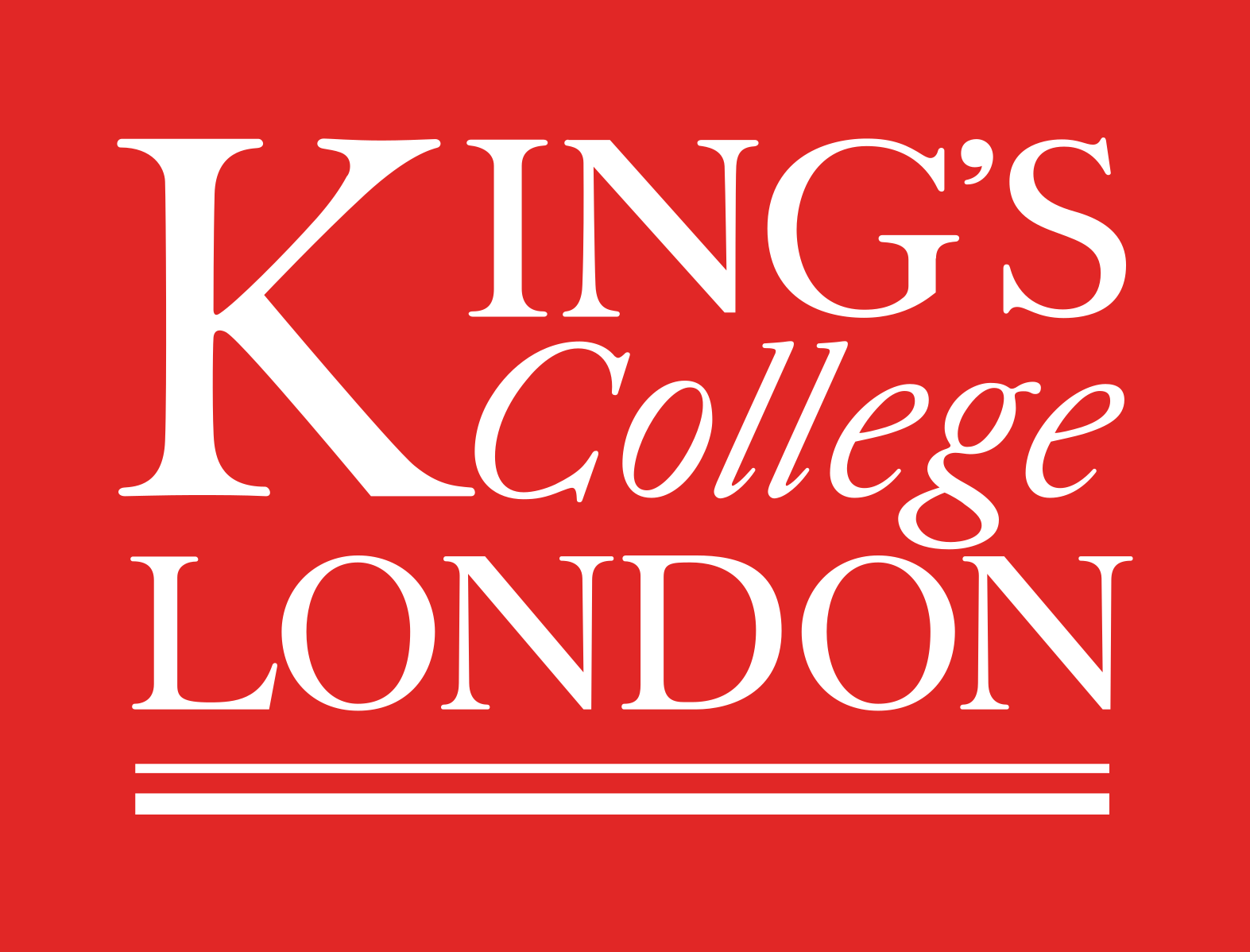People and Participation
Pathways to powerful community voice in the governance of data and AI

How can the use of data and AI be aligned with public interest, and reflect the needs of different communities? Public participation involves creating routes to engage, consult and share power with those affected by data and AI decisions.
We’ve been exploring how different public participation practices can bring more voices to the table, and lead to real change in how organisations do data. Through case study research, project evaluation, design labs and hands-on practice we’ve been looking at participatory data governance from the grassroots to the global.
If you would like to talk more about how this could apply in your context, whether you are from a community affected by data and AI, or thinking about your organisations’ latest technology project, we would love to hear from you.
Whenever we speak to public servants who are keen to involve the public more on decisions about data and AI, an early subject to be raised is always: who’s already done it, and how did they do it? People are understandably keen to learn from what has already been tried.
This blog/case study is part of a series exploring how public sector organisations involve the public, workers and civil society in decisions about data and AI, and some of the consequences when they do not. Read more about our work on public involvement in public sector data and AI.
This report explores how global citizen deliberation, particularly drawing on the concept of a global citizens’ assembly, could and should shape the future of artificial intelligence. Drawing on an extended design lab of in-depth interviews and workshops that took place in mid-2024, it presents a series of options that illustrate a variety of opportunities to bring the voices of those affected by AI development and deployment into decision-making spaces, through processes that can deliver informed and inclusive dialogue.
The landscape of AI governance is rapidly evolving. There are open questions at many levels, from setting shared values and visions to guide AI development, to designing specific governance mechanisms or safety standards, and shaping the models and rules for individual and localized applications. There is growing consensus that these questions cannot be answered by the technology industry or individual governments alone. Global publics must be meaningfully involved.
The concept of a global citizens’ assembly is a powerful one: inviting individuals from across the globe to join in processes where they have access to expert insights, opportunities to learn, and facilitated space to deliberate together, bringing diverse perspectives and experiences to bear on questions of global importance. In this report we address how established and emerging sites of global AI development and governance can integrate citizen deliberation, setting out five template options: deliberative review of AI summits and scientific reports; an independent global assembly on AI; a series of distributed dialogues organized across the globe; a technology-enabled collective intelligence process; and commissioning of AI topics in other deliberative processes.
We present the strengths and weaknesses of these options, and outline additional design considerations they give rise to around recruitment, governance, agenda-setting, transnational dialogue and aggregation of findings, and the use of AI as a delivery tool. In doing so, we aim to support a critical assessment of emerging and future proposals for public participation on AI, both at the global and local level.
Our observatory of participatory data governance practice collects together examples of projects and methods for giving individuals and communities a voice in data governance decision making.
In 2022, Justice Lab, a special initiative of The Legal Education Foundation commissioned Ipsos UK to carry out public attitudes research and a public deliberation exercise about the commercial use of data in court records, and particularly bulk access to court judgments. This was intended to inform the work of the Shadow Senior Data Governance Panel and the governance of data made available through a new Find Case Law service, managed by The National Archives, providing access to court judgments.
This evaluation examines the effectiveness of this project, to understand how to fill gaps in existing research and identify lessons to be learned for similar exercises in the future. We carried out a review of the project reports and documentation, 10 semi-structured interviews with a range of stakeholders, and desk research on other public dialogue and deliberation exercises and recognised best practices.
Data and AI are changing our world… community led campaigns can reshape how.
We are running a community data campaigns cohort with five wonderful groups. Together we will be exploring through monthly shared learning sessions, access to 1-to-1 advice, and bespoke expert input ways to advance community led campaigns on data.

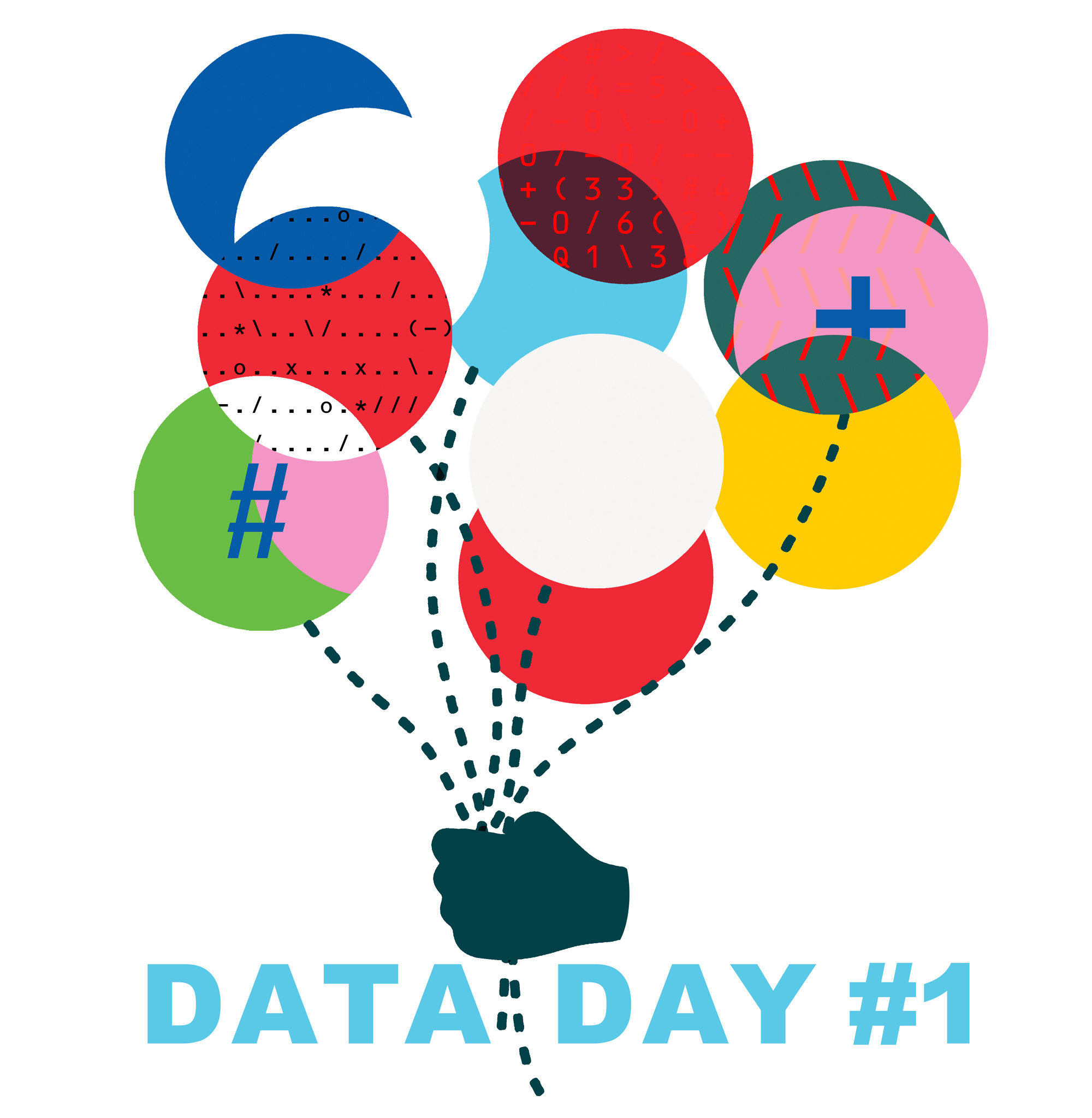
We worked with Create Gloucestershire, Active Gloucestershire and Barnwood Trust to organise a one-day county-based conference exploring how data can work better for local communities.
We believe effective data governance should be: collective, democratic, participatory, deliberative and powerful.
But what should organisations collecting, using or stewarding data, and the communities that data affects, do in order to achieve this? And how can we show that the often dry topic of data governance is something that demands creative and critical engagement?
We’ve been running a multi-stage design lab to explore the creation of a serious game (or games) that can help individuals and organisations to think about planning, running and evaluating collective and participatory data governance activities.
You can find the working draft of the game here.
Over the coming months we’re looking for opportunities to iterate on this resource further, and developing resources to support its use in organisational and workshop settings.
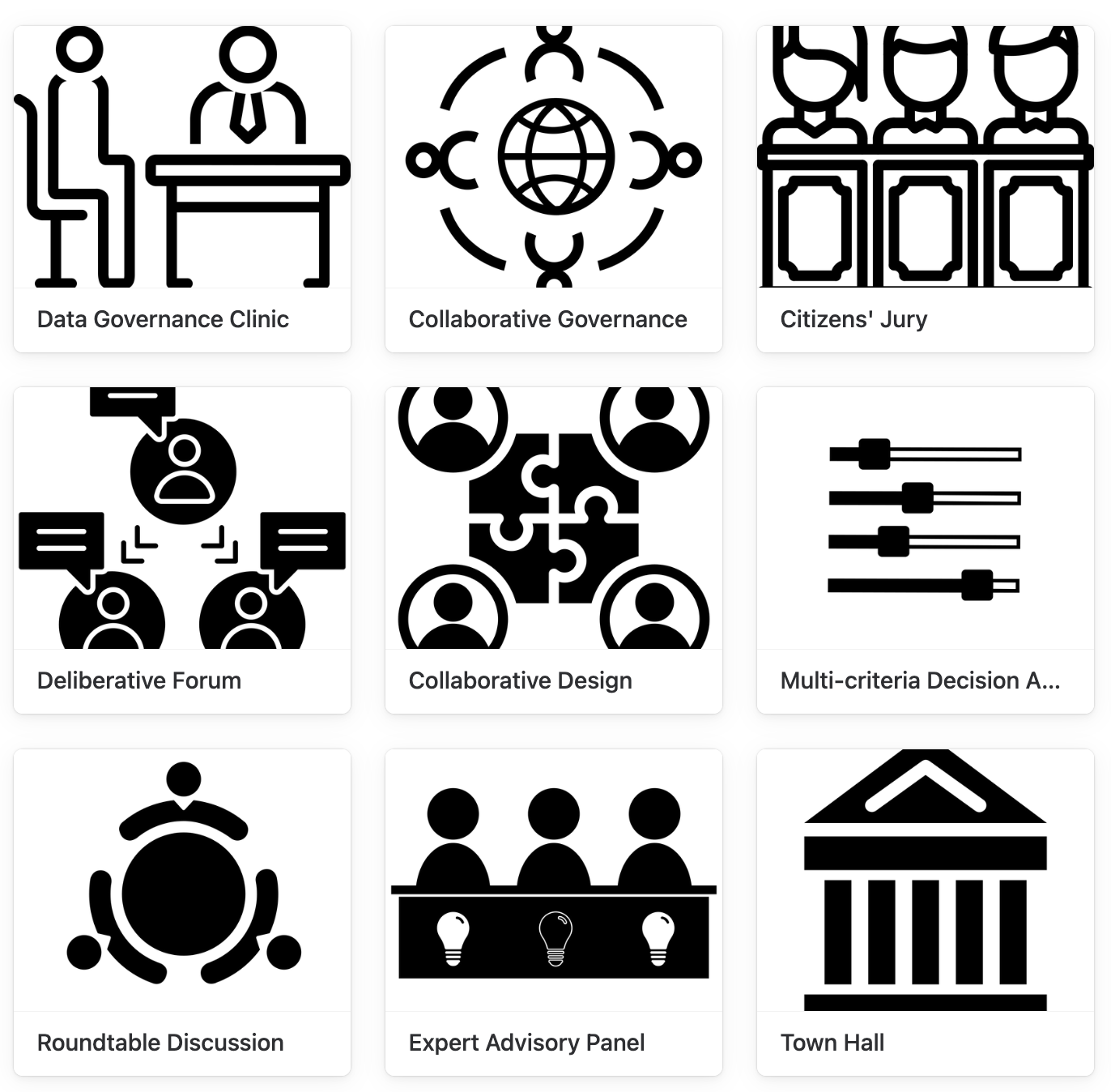

The People’s Panel on AI brought together representative members of the public to attend, observe and discuss key events at the AI Fringe, which was held alongside the UK Government’s AI Safety Summit at the beginning of November 2023.
Through a deliberative process facilitated by Hopkins Van Mil the People’s Panel on AI produced a public report giving their verdict on AI and their recommendations to government, industry, civil society and academia for further action.
The UN High Level Advisory Board on Artificial Intelligence is calling for new institutional arrangements to support the governance of AI that can deliver against the principle that AI should be governed “for all, by all”.
In parallel, the Coalition for a Global Citizens Assembly have launched plans for a permanent Global Citizens’ Assembly, to address humanity’s greatest challenges.
How could a Global Citizens Assembly on AI work? That’s the question we’ve explored, producing an options paper launched alongside the UN Summit of the Future in September 2024.

Mapping Participatory Digital Governance
Exploring organisations and projects that give communities voice in governing digital technologies
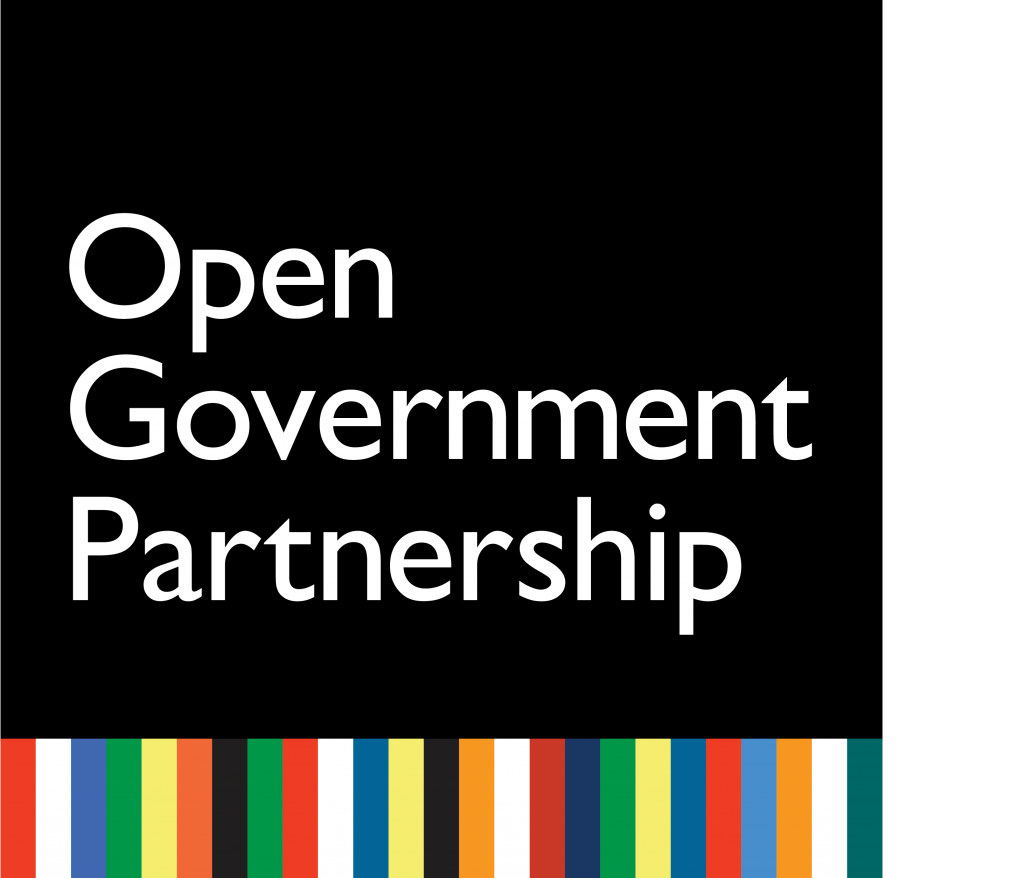
The Open Government Partnership’s Digital Governance challenge calls for national and local governments to commit to “strengthen transparency and public oversight of AI, automated-decision making, and data protection frameworks” including by “creating specific public participation opportunities”.
To support this, we were commissioned to carry out a mapping of organisations that are developing and leading participatory digital governance activities, and to identify possible examples of participatory digital governance that might inspire new commitments and actions.
CONNECTED BY DATA were commissioned by Public Voices in AI to facilitate a People’s Advisory Panel supporting their year long project, following our success with the People’s Panel on AI.
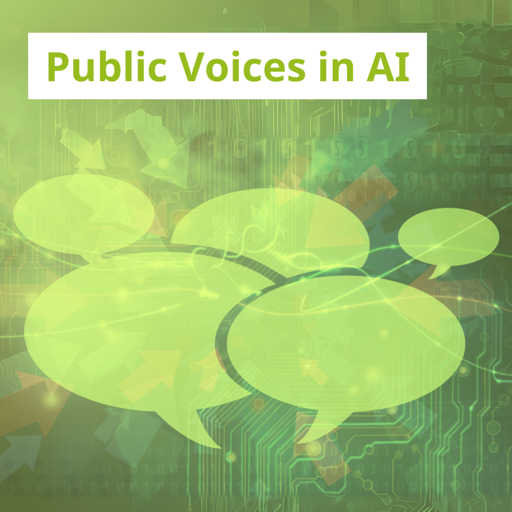

We co-organised the first Participatory AI Research and Practice Symposium at the AI Action Summit in Paris in 2025 as a space to bring together researcher, practitioners, policy makers, activists and industry to share learning on embedding participatory approaches to AI development, governance and resistance.
Over the coming year we will be dedicating time to the next edition of PAIRS, and to developing PAIRSx events that look at participatory AI in different thematic communities.
Our goal is a pluralist, equitable, democratic future where AI development is bent towards the public interest. This requires the embedding of participatory practice and the voice of affected communities in how we build, govern and respond to AI.


We are working with DfE to develop a creative engagement toolkit to support participatory sessions with children and young people (ages 10–18) in schools, colleges, youth groups, and community settings. The toolkit will help facilitators gather youth perspectives on generative AI in education, with a focus on what they want technology companies to consider.
How can different publics and civil society play a greater role in the procurement of AI-driven systems in the public sector? How can AI procurement decisions include the voices of the most affected communities? In partnership with ParticipationAI, we’ve been working on developing a set of principles for public participation in AI Procurement.
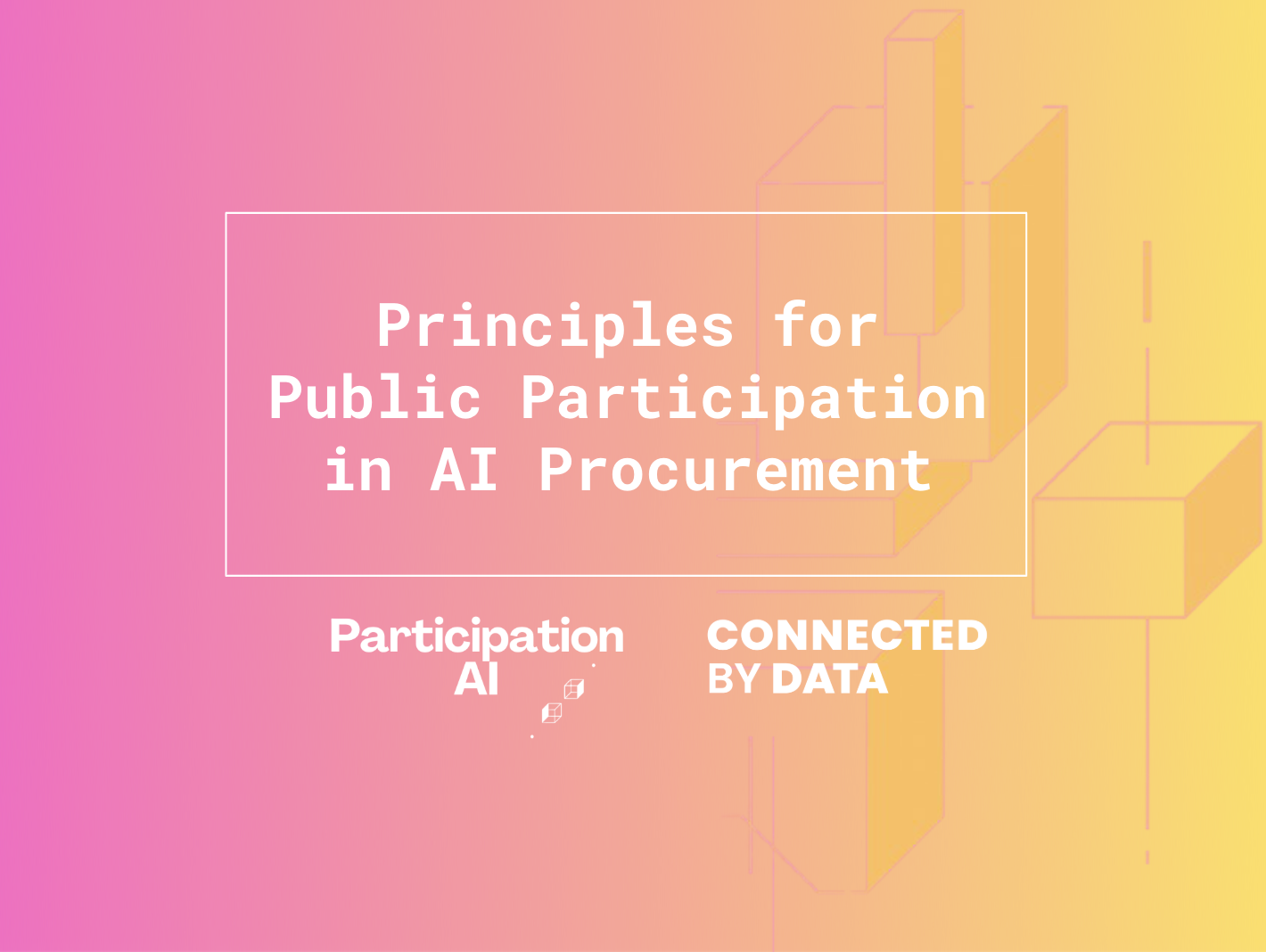

Join us to explore the methods and findings from the Generative AI in Education: Have your Say distributed dialogue and to ask how we can make sure that future decisions about data and AI in education are shaped by the voices of the students affected.

On Wednesday 11 March 2026 at 2pm we will hold the final meeting of a community of practice as part of our project on Giving communities a powerful say in public sector data and AI projects.
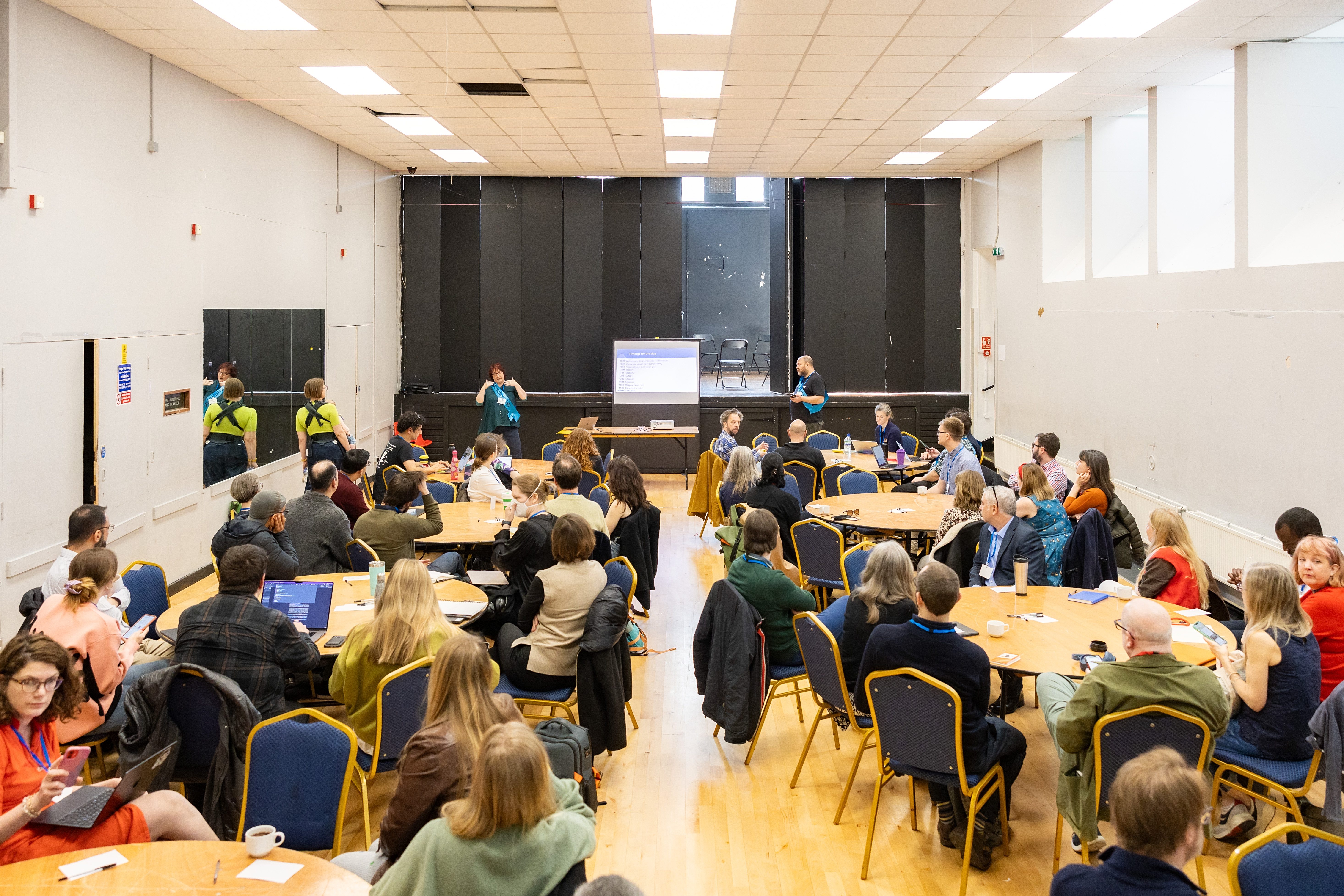
This conference is for anyone interested in how to achieve better outcomes in the delivery of digital, data and AI work in the public sector through the involvement of the public, communities and workers. Come if you’re a public servant trying to engage or involve the public in your work on technology. Come if you’re working in civil society, in the union movement, or with grassroots groups, trying to be heard. Come to share what you’re up to, and to learn from others; leave with new insights, ideas, and connections.

Save the data for the 2026 edition of the Participatory AI Research and Practice Symposium online and in-person alongside the India AI Impact Summit.

On Wednesday 11 February 2026 we held the sixteenth meeting of a community of practice as part of our project on Giving communities a powerful say in public sector data and AI projects.

Tim presented to country offices from the United Nations Development Programmes Europe and Central Asia (RBEC) region, as part of a series on ‘AI in Practice’.

Jeni spoke on the opening panel of the UK’s Generative AI for Education Summit, presenting findings from the Generative AI in Education: Have Your Say project.

On Wednesday 14 January 2026 at 2pm we held the fifteenth meeting of a community of practice as part of our project on Giving communities a powerful say in public sector data and AI projects.

On Wednesday 10 December 2025 at 2pm we held the fourteenth meeting of a community of practice as part of our project on Giving communities a powerful say in public sector data and AI projects.

On Wednesday 19 November 2025 at 2pm we held the thirteenth meeting of a community of practice as part of our project on Giving communities a powerful say in public sector data and AI projects.
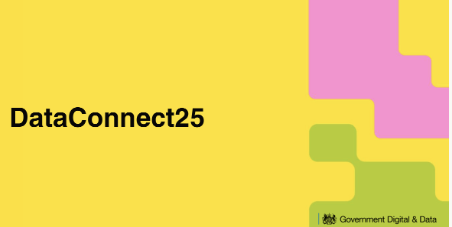
Jeni will be at DataConnect25, jointly hosting a session with Louise Petre (GDS) on co-design of digital public services.
Tim will be presenting a lighting talk at the launch of the Kings College Data Empowerment Clinic, along with partners from our Community Campaigns on Data project: Fabriders and Care Full.

On Wednesday 8 October 2025 we held the twelfth meeting of a community of practice as part of our project on Giving communities a powerful say in public sector data and AI projects.


In a fragmented AI governance landscape shaped more by economic interests than public concerns, how can diverse voices contribute to shaping AI strategies, policies and frameworks? In this fishbowl session at the Open Government Partnership Global Summit we explored challenges and learning from across the world on approaches to give citizens greater agency in shaping the future of artificial intelligence in both public and private sectors.
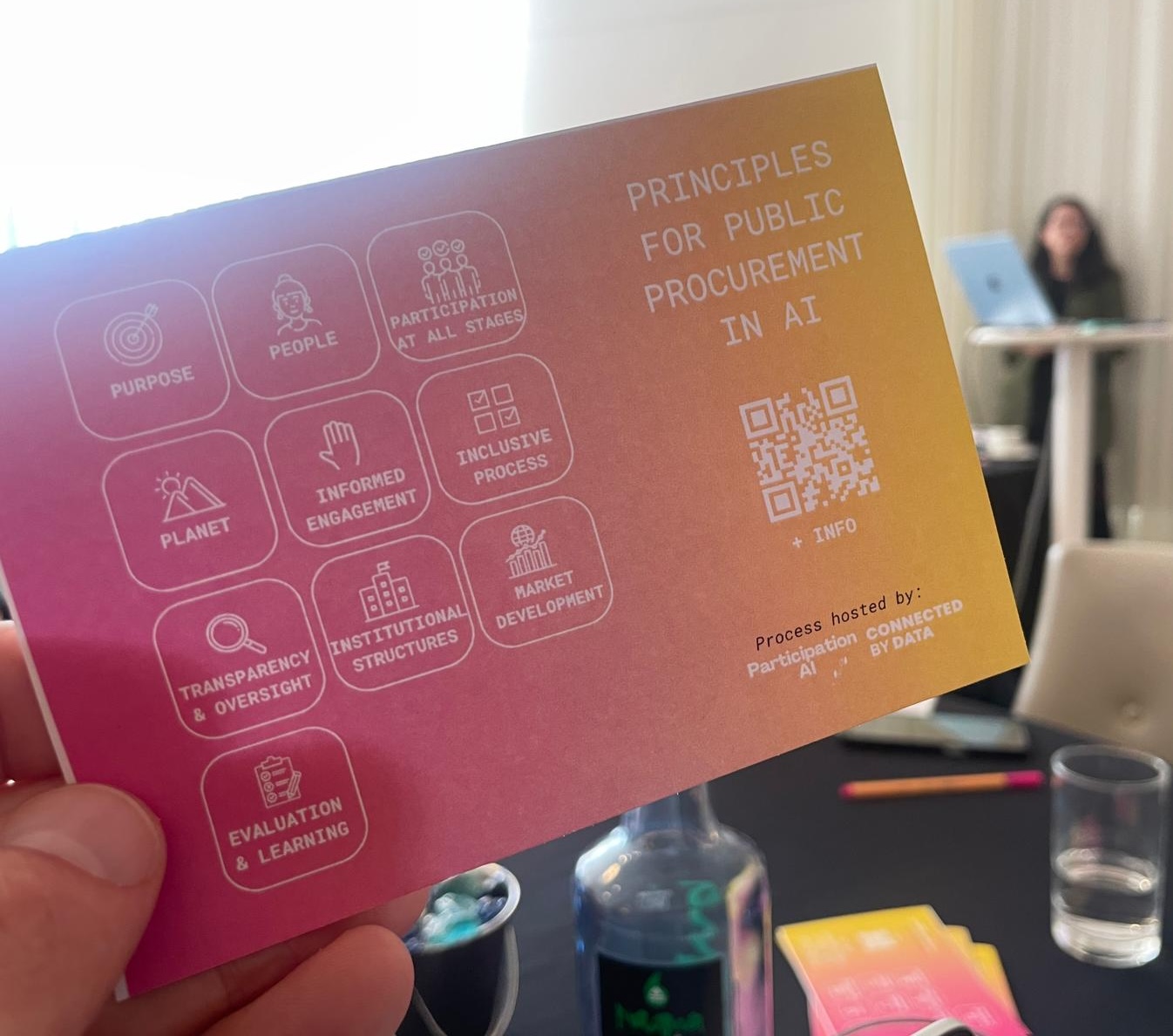
Local and national governments are spending $millions on Artificial Intelligence (AI) tools to support efficiency and reform in service delivery, and new AI features are being offered in many of the existing tools governments use.
On the morning of Monday 6th October we co-hosted a fringe event of the OGP Global Summit to explore the role of procurement in shaping AI in government, and the role of public participation in shaping AI procurement, launching the Principles for Public Participation in the Procurement of AI (P4AI)
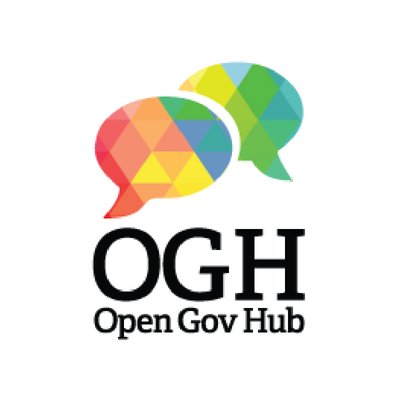
At the Open Government Partnership Summit in October 2025 Participation AI and Connected by Data will launch a set of principles for public engagement in AI procurement.
In this brown-bag lunch at the OpenGovHub in Washington DC we’ll be sharing the draft principles for discussion, and gathering shared insights and inputs on how they can be put into practice.

Along with Lucia Errandonea from Participation AI Tim presented the draft principles on public participation in AI procurement to the Open Government Partnership’s Open Algorithms Network, which brings together government representatives from over 10 countries within the OGP Network.
The session offered an opportunity to get feedback on the draft principles, and to explore some of the challenges governments face in embedding transparency and participation within technology procurement activities.

On Wednesday 10 September 2025 at 2pm we held the eleventh meeting of a community of practice as part of our project on Giving communities a powerful say in public sector data and AI projects.

Jeni is attending a workshop on ‘AI in policing’ hosted by JUSTICE, in London.

On Wednesday 9 July 2025 at 2pm we will hold the tenth meeting of a community of practice as part of our project on Giving communities a powerful say in public sector data and AI projects.
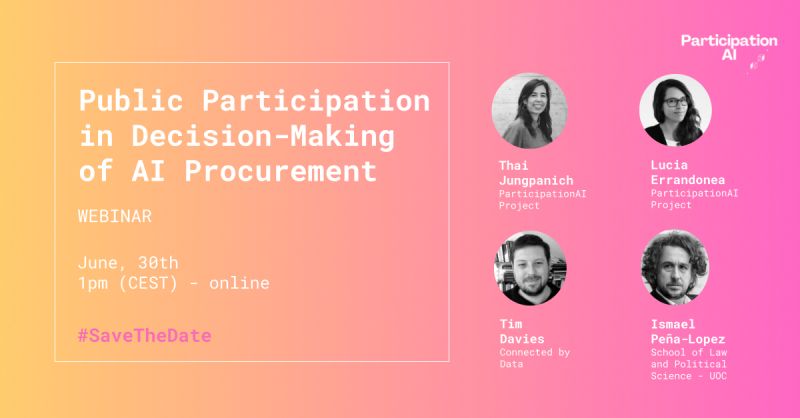
As governments increasingly use AI to deliver public services, key decisions—especially around procurement—often happen behind closed doors, without input from the communities most affected.

On Wednesday 18 June 2025 at 2pm we held the ninth meeting of a community of practice as part of our project on Giving communities a powerful say in public sector data and AI projects.

On Wednesday 14 May 2025 at 2pm we will hold the eight meeting of a community of practice as part of our project on Giving communities a powerful say in public sector data and AI projects.
Tim attended the Swansea edition of the Royal Academy of Engineering’s People’s AI Stewardship Summit as an invited stakeholder.
The Summits, which are taking place in the Royal Academy of Engineering’s regional enterprise hubs across the United Kingdom, are day long public engagement events involving a diverse cross-section of the public, in dialogue with local innovators and policy makers, on various issues related to AI.

On Wednesday 9 April 2025 at 2pm we will hold the seventh meeting of a community of practice as part of our project on Giving communities a powerful say in public sector data and AI projects.
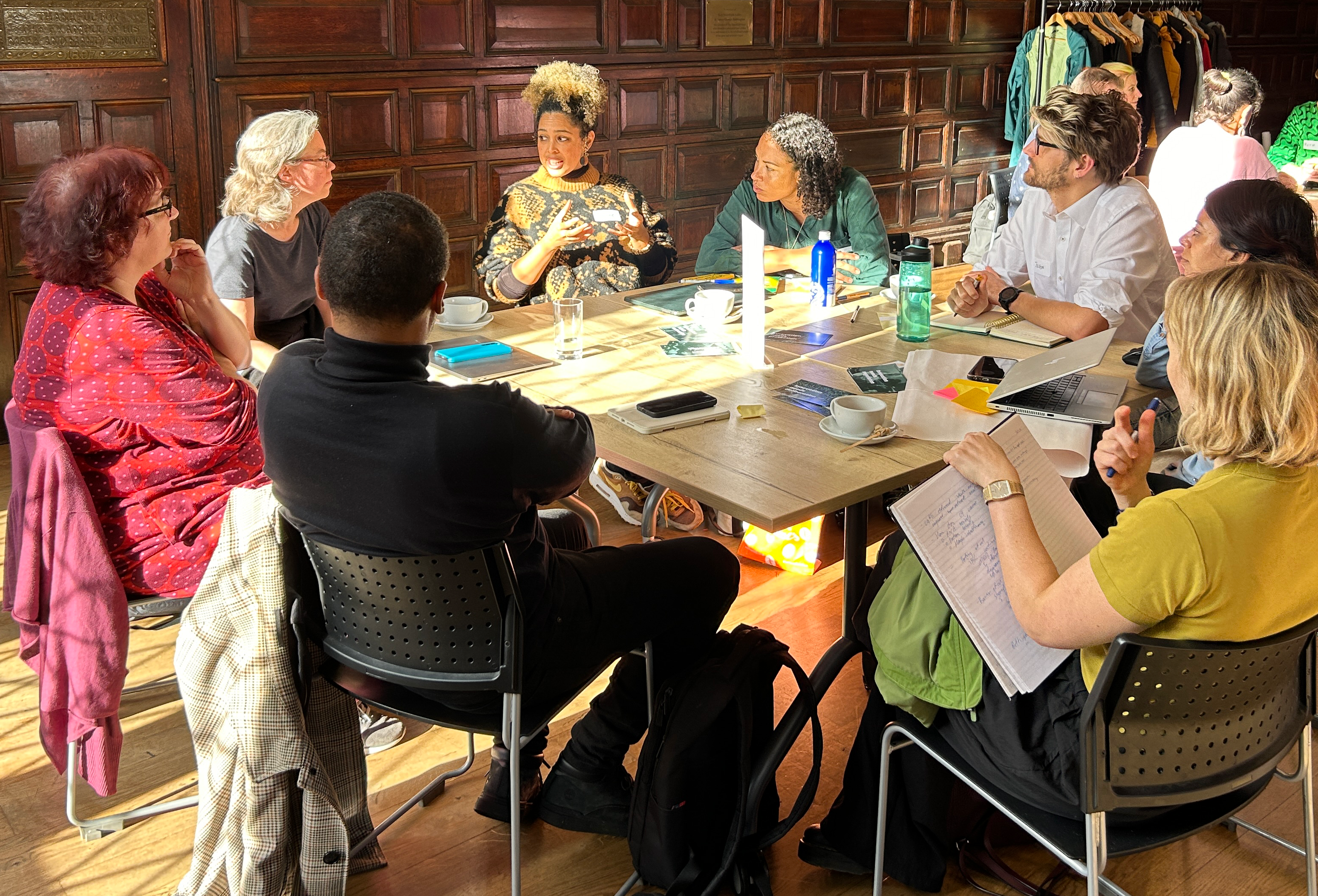

Unconferences are participant-driven meetups that focus on sharing, learning and community building.
This unconference was for people (particularly inside the public sector) who are interested in ensuring that public, community and worker voices are heard in decisions about data, digital and AI.
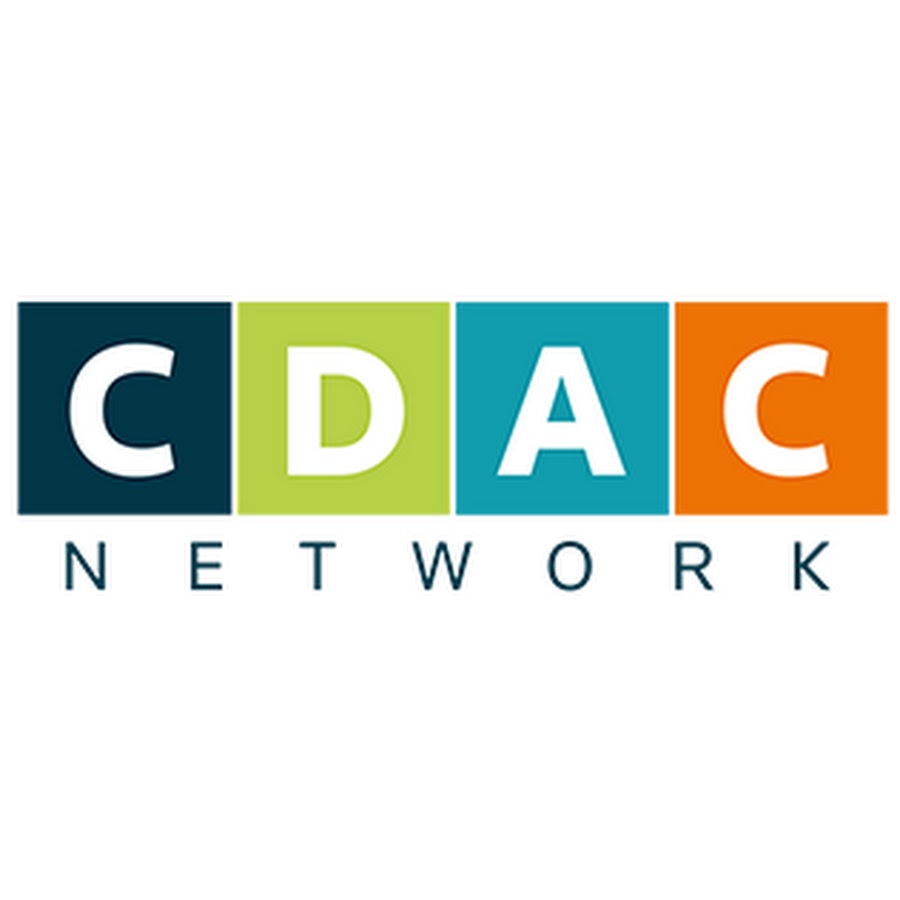
Tim attended a roundtable at the Foreign, Commonwealth and Development Office organised by the SAFE AI project.
Amidst a context of unprecedented crisis for the humanitarian system, facing growing demand, devastating cuts to funding and programmes, and erosion in respect for international humanitarian law and norms, the round table explored the additional challenge of humanitarian sector responses to AI.
I was asked to provide a few minutes of input during discussions on Power & Participatory AI, notes for which are reproduced below (edited based on delivery and to expand on a few points with links).

On Wednesday 12 March 2025 at 2pm we will hold the sixth meeting of a community of practice as part of our project on Giving communities a powerful say in public sector data and AI projects.

On Wednesday 12 February 2025 at 2pm we will hold the fifth meeting of a community of practice as part of our project on Giving communities a powerful say in public sector data and AI projects.

Artificial intelligence is changing our world: but how can the public shape our AI future? This invite-only event will explore practical grassroots and global approaches to including public voices in the development and governance of AI.
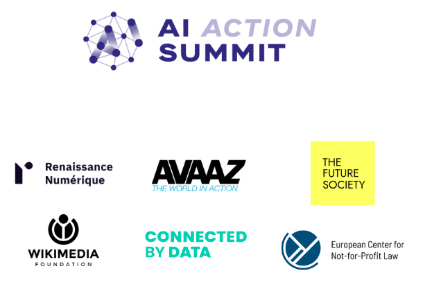
The Artificial Intelligence (AI) Action Summit will take place in Paris on 10th and 11th February 2025. It will gather Heads of State and Government, leaders of international organisations, CEOs of small and large companies, representatives of academia, non-governmental organisations, artists and members of civil society. On this occasion, Renaissance Numérique, The Future Society, Wikimedia France, the Avaaz Foundation, Connected by Data and the European Center for Non-for-Profit Law are glad to invite you to their civil society side-event.

February 8th (Paris) 2025
An independent symposium taking place online and person organised to coincide with the Paris AI Action Summit (10th - 11th Feb 2025) as a space to present research and case studies on the state of the art in participatory development and governance of AI, and to build stronger connections across the field.
| 🔗 Register | Draft agenda |

An independent symposium taking place online and person organised to coincide with the Paris AI Action Summit (10th - 11th Feb 2025) as a space to present research and case studies on the state of the art in participatory development and governance of AI, and to build stronger connections across the field.
| 🔗 Register | Draft agenda |

On Wednesday 15 January 2025 we held the fourth meeting of a community of practice as part of our project on Giving communities a powerful say in public sector data and AI projects.

We supported the second Gloucestershire data day in December 2024 as a local, place based, example of convening around data.

On Wednesday 11 December 2024 at 2pm we will hold the third meeting of a community of practice – an online workshop – as part of our project on Giving communities a powerful say in public sector data and AI projects.

On Thursday 3 October 2024 we held the second meeting of a community of practice as part of our project on Giving communities a powerful say in public sector data and AI projects.
We will be sharing outputs from our design lab on options for a global citizens assembly on AI at TechSalon New York, ahead of the Civil Society Days of the UN Summit of the Future.

How can community-led campaigns transform the way data is collected, managed, shared and used?
On 20 June 2024 we brought together a number of different community campaigns, along with our Community Data Campaigns Cohort to work through a series of prototype practical activities designed to accelerate community campaigning on data, helping to shape campaigning strategies, while contributing to shared resources that can support future campaigning.
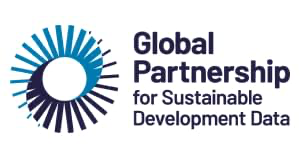
Tim spoke alongside partners from the Global Partnership for Sustainable Development Data on May 29, 9-10am EST for a virtual session on participatory data governance.

As part of our design lab scoping options for a Global Citizens’ Assembly on AI (GCA on AI), Tim attended the launch of the findings from the Belgian Citizens Panel on AI at the Residence Palace in Brussels.
The Belgian Citizens Panel was composed of 60 randomly selected citizens invited to take part in three weekends of learning and deliberation in the first part of 2024 on question around the evolution of artificial intelligence in Europe. The Panel was organized as part of the Belgian presidency of the European Union, and was the first time a citizens assembly has been organized in this context.

The People’s Panel on AI is bringing together 12 diverse members of the public to attend, observe and discuss Fringe events. The Panel presented reflections and recommendations from the week at 13:30 UK time on Friday 3rd November.
After engaging with the AI Fringe, looking at the outcomes of the AI Safety Summit, and talking to experts about their hopes and fears for AI, what priorities did members of the public have for the future governance of AI?
Opinion
As part of the launch for the Principles on Public Participation in the Procurement of AI this week we ran a play test of an adapted version of the Good Governance Game.
As the the Open Government Community, Connected by Data amongst them, meet in Vitoria-Gasteiz in Spain this week, they will reaffirm a commitment to the Open Government Declaration, with it’s central focus on supporting civic participation. In the new Vitoria-Gasteiz Declaration they will also highlight the need to link open government with broader global agendas, including the governance of “artificial intelligence, data, and emerging technologies”, providing renewed backing for the idea that “public participation in civic life” must extend to the public decisions about data and digital.
In July we coordinated an open letter to Keir Starmer PM, Peter Kyle MP (the then Secretary of State for Science, Innovation and Technology) and Bridget Phillipson MP (then Secretary of State for Education) calling for investment in AI Literacy for All.
We received a brief e-mail reply from the Department for Education and, on August 28th, a reply from Feryal Clark MP, the then Parliamentary Under Secretary of State at the Department for Science, Innovation & Technology which is quoted below:
The principles for Public Participation in AI Procurement we will be co-launching alongside the Open Government Partnership Summit in a few weeks time focus on the what and the how of involving affected communities in decisions at all stages of buying and managing AI systems in the public sector. But ahead of that, we need to answer the question why? Why is is particularly important to involve publics in AI procurement, when, to date, procurement has often not been a space where public engagement is widespread.
Preparing for our workshop at the Open Gov Hub today, I’ve jotted down the following reasons.
On 9th June the Prime Minister announced a skills drive on AI focussed technical/functional skills for students and workers, with the announcement centred on industry collaborations, and economic impacts of AI.
Drawing on inputs from a meeting of the Charity AI Taskforce, and from the Data & AI Civil Society Network, and with feedback from contributors listed below, we drafted an open letter to call for a greater focus of investment and action on scaling and sustaining comprehensive critical AI literacy programmes for all citizens.
The letter was open for signature over June, and has been sent to the Prime Minister, Secretary of State for Science, and Secretary of State for Education.
A full copy of the letter can be found here and if you would like to receive updates on any government response or be invited to a follow-up online conversation, please complete the form here.
An op-ed written by the PVAI People’s Advisory Panel
The upcoming government spending review is likely to place a big emphasis on the potential of AI to update public services, and yet less than 25% of the population feel their views and values are represented in current decisions being made about AI. As a group of citizens from all walks of life, engaged over the last year in exploring how the public could, and should, have a voice shaping a responsible AI future, we believe that needs to change. And it can.
Recently I’ve had the privilege of convening a couple of public advisory panels for large-scale research and evaluation programmes, including the Connected by Data Public Voice in AI (PVAI) People’s Advisory Panel. In both cases the panels led to tangible improvements in the programmes they were advising, but running these sessions was not without its challenges. Here I share some reflections on how to work well with a public advisory panel.
Over March 2025 we’re mapping out organisations and projects across the globe that are giving communities a voice in the governance of digital technology in public or private sectors as part of a rapid research project for the Open Government Partnership.
As part of our work on the Community Campaigns on Data: Campaigners Toolkit we have identified a series of case studies that provide an insight into how data is a key component of campaigns.
As part of our work on the Community Campaigns on Data: Campaigners Toolkit we have identified a series of case studies that provide an insight into how data is a key component of campaigns.
As part of our work on the Community Campaigns on Data: Campaigners Toolkit we have identified a series of case studies that provide an insight into how data is a key component of campaigns.
As part of our work on the Community Campaigns on Data: Campaigners Toolkit we have identified a series of case studies that provide an insight into how data is a key component of campaigns.
As part of our work on the Community Campaigns on Data: Campaigners Toolkit we have identified a series of case studies that provide an insight into how data is a key component of campaigns.
As part of our work on the Community Campaigns on Data: Campaigners Toolkit we have identified a series of case studies that provide an insight into how data is a key component of campaigns.
Weeknotes
Weeknotes are a combination of updates and personal reflection written on a routine basis
